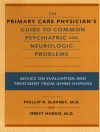This definitive clinical reference comprehensively reviews the most advanced methods for assessing the person in pain. The field’s leading authorities present essential information and tools for evaluating psychosocial, behavioral, situational, and medical factors in patients’ subjective experience, functional impairment, and response to treatment. Empirically supported instruments and procedures are detailed, including self-report measures, observational techniques, psychophysiological measures, and more. Best-practice recommendations are provided for assessing the most prevalent pain syndromes and for working with children, older adults, and people with communication difficulties. The book also weighs in on the limitations of existing methods and identifies key directions for future research.
Mục lục
Introduction
1. The Measurement of Pain and the Assessment of People Experiencing Pain,
Dennis C. Turk and
Ronald Melzack
I. Self-Report Measures of Pain
2. Self-Report Scales and Procedures for Assessing Pain in Adults,
Mark P. Jensen and
Paul Karoly
3. The Mc Gill Pain Questionnaire: Development, Psychometric Properties, and Usefulness of the Long Form, Short Form, and Short Form–2,
Joel Katz and
Ronald Melzack
4. Psychosocial Assessment: Comprehensive Measures and Measures Specific to Pain Beliefs and Coping,
Douglas E. De Good and
Andrew J. Cook
5. Assessment of Couples and Families with Chronic Pain,
Joan M. Romano,
Annmarie Cano, and
Karen B. Schmaling
II. Measures of Pain Not Dependent on Self-Report
6. The Facial Expression of Pain,
Kenneth D. Craig,
Kenneth M. Prkachin, and
Ruth E. Grunau
7. Assessment of Pain Behaviors,
Francis J. Keefe,
Tamara J. Somers,
David A. Williams, and
Suzanne J. Smith
8. Psychophysiological and Neuroimaging Measures in the Assessment of Patients with Chronic Pain,
Herta Flor and
Patric Meyer
9. Quantification of Function in Chronic Low Back Pain,
Peter B. Polatin,
Whitney E. Worzer,
Emily Brede, and
Robert J. Gatchel
10. Assessment of Patients with Chronic Pain: A Comprehensive Approach,
Dennis C. Turk and
James P. Robinson
III. Assessment of Special Populations
11. Assessment of Pain in Infants, Children, and Adolescents,
Danielle A. Ruskin,
Khush A. Amaria,
Fay F. Warnock, and
Patricia A. Mc Grath
12. Assessment of Pain in Older Persons,
Lynn R. Gauthier and
Lucia Gagliese
13. Assessment of Pain in Adults and Children with Limited Ability to Communicate,
Thomas Hadjistavropoulos,
Lynn M. Breau, and
Kenneth D. Craig
IV. Assessment of Specific Pain Conditions and Syndromes
14. Assessment of Acute Pain, Pain Relief, and Patient Satisfaction,
Shawn T. Mason,
James A. Fauerbach, and
Jennifer A. Haythornthwaite
15. Clinical Assessment of Low Back Pain,
Paul J. Watson
16. Assessment of Fibromyalgia Syndrome, Myofascial Pain Syndromes, and Whiplash-Associated Disorders,
James P. Robinson and
Dennis C. Turk
17. Assessment of Neuropathic Pain,
Ian Gilron,
Nadine Attal,
Didier Bouhassira, and
Robert H. Dworkin
18. Assessment of Headaches,
Frank Andrasik,
Dawn C. Buse, and
Alyssa Lettich
19. Assessment of Patients with Cancer-Related Pain,
Karen O. Anderson
V. Special Issues and Applications
20. Assessment of Psychiatric Disorders,
Mark D. Sullivan and
Jennifer Brennan Braden
21. Disability Evaluation in Painful Conditions,
James P. Robinson
22. The Importance of Biopsychosocial Screening before Surgical Intervention or Opioid Therapy for Patients with Chronic Pain,
Robert J. Gatchel
23. Assessment of Chronic Pain in Epidemiological and Health Services Research: Empirical Bases and New Directions,
Michael Von Korff
24. Assessment of Pain and Health-Related Quality of Life in Chronic Pain Clinical Trials,
Alec B. O’Connor and
Robert H. Dworkin
Conclusion
25. Trends and Future Directions,
Dennis C. Turk and
Ronald Melzack
Giới thiệu về tác giả
Dennis C. Turk, Ph D, is the John and Emma Bonica Professor of Anesthesiology and Pain Research and Director of the Center for Pain Research on Impact, Measurement, and Effectiveness at the University of Washington School of Medicine. His research focuses on the assessment and treatment of a range of chronic pain conditions, clinical trial design, comparative effectiveness research, subgroup identification and treatment matching, and coping and adaptation. Dr. Turk is a recipient of the John C. Liebeskind Award for Career Contribution to Pain Research from the American Academy of Pain Management and the Wilbert E. Fordyce Clinical Investigator Award from the American Pain Society. Ronald Melzack, Ph D, until his death in 2019, was Professor Emeritus of Psychology at Mc Gill University in Québec, Canada. Dr. Melzack developed the Mc Gill Pain Questionnaire, the world’s most widely used measurement tool for research on pain in human subjects. In recognition of his breakthrough research on pain, Dr. Melzack was appointed an Officer of the Order of Canada and received the Prix du Québec for research in pure and applied science. Among numerous awards, he was elected a Fellow of the Royal Society of Canada, was honoured with a Killam Prize, and earned the Grawemeyer Award for Psychology. In 2009, he was inducted into the Canadian Medical Hall of Fame.












